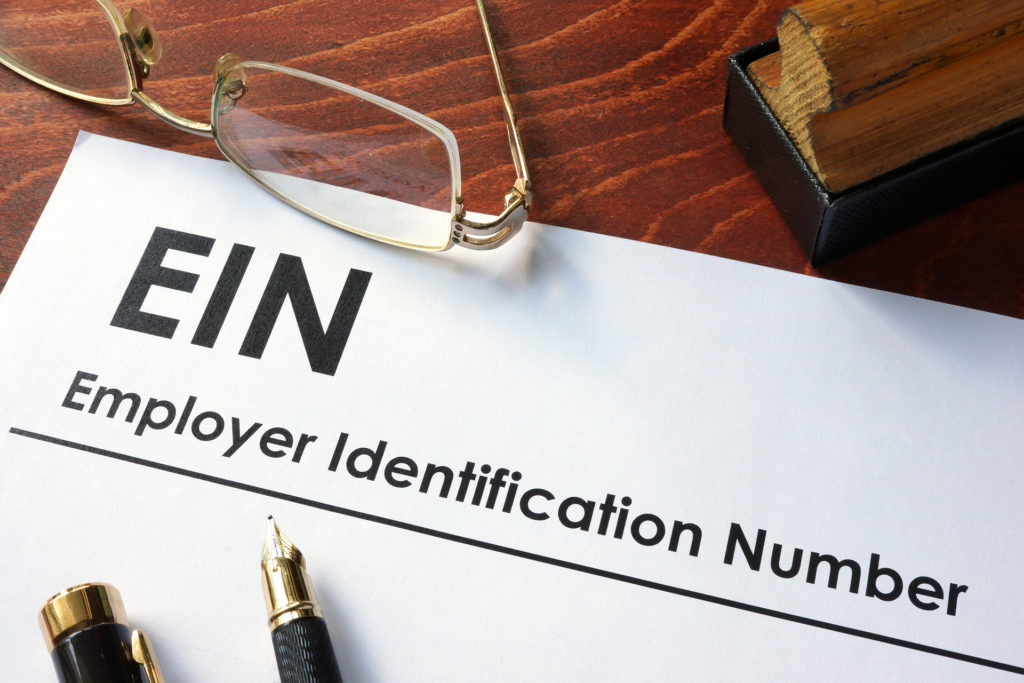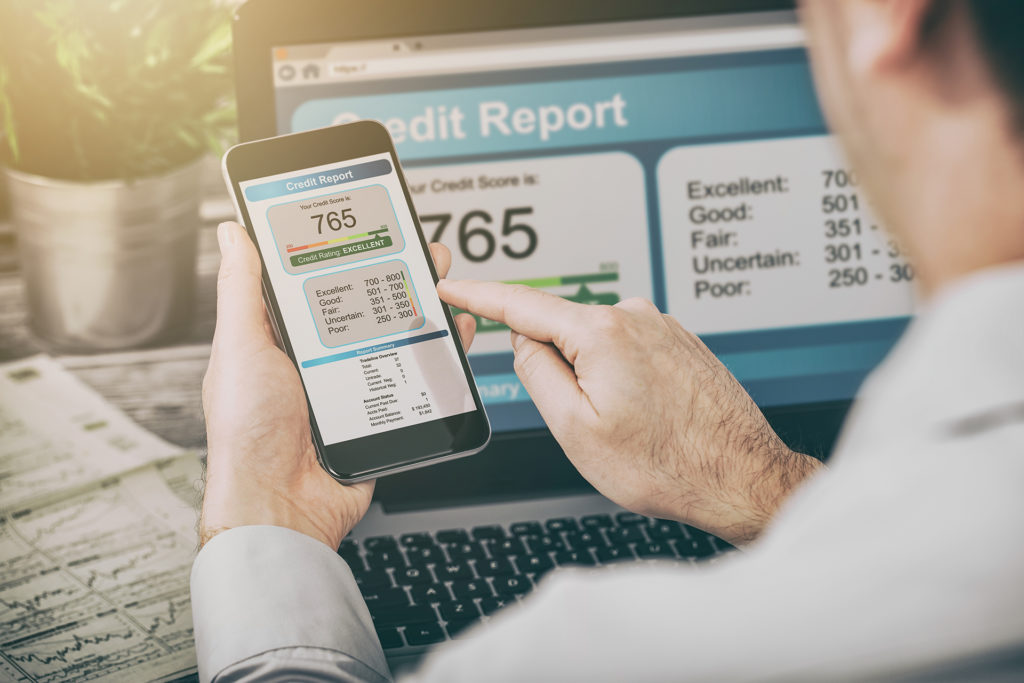Let’s face it, running a small business is exciting! You’re the boss, calling the shots and building something from the ground up. But along with the thrill comes responsibility, especially when it comes to your business finances. One crucial aspect you still need to consider is how to build business credit. It’s just as important (if not more) than your personal credit score for the long-term health of your company.
When I started my own business, understanding how to build business credit was as crucial as any other aspect of business planning. I learned that to ensure my business could succeed in the future, I needed to establish and build my business credit the right way.
Figuring out how to build business credit isn’t just about getting better loans or business credit cards; it’s about creating a safety net for your business. This can help you get bigger loans, better terms with suppliers, and even better lease terms for business spaces. A strong business credit file shows others, like potential partners and investors, that your business is trustworthy.
During this journey, I learned that to build business credit, I had to start by getting a business bank account and paying bills on time. These steps are crucial to showing business credit bureaus that my business deserves a good business credit score. This score has helped me get good deals on business credit and was really important when my business needed to grow or when cash flow was low.

What exactly is a business credit, and why should you care? In contrast to your personal credit score, which is based on your individual borrowing and repayment history, business credit focuses on the financial health of your business entity, whether it’s a sole proprietorship, limited liability company (LLC), or another legal structure.
Business credit bureaus like Dun & Bradstreet collect information about your business, including your tax ID number (EIN), business bank accounts, and payment history with vendors and suppliers. They then use this information to build business credit reports and credit scores. Learning to build business credit effectively can give your business a solid foundation for future financial interactions. Business Insider provides an insightful article about the three major business credit bureaus.
When I first opened a business bank account, I was taking a crucial step toward figuring out how to build business credit history. A good business credit score can make a huge difference. It can help you get better loan interest rates and more favorable terms from suppliers and increase your credit limits. Strong business credit means you can manage more significant projects and grow your business because you have better access to financial resources.

How to build business credit starts with understanding how it works. Your business credit score is based on several elements, including your payment history, credit utilization rate, and the status of your credit accounts. It’s essential to consistently monitor your business credit to ensure it accurately reflects your financial stability and creditworthiness.
One of the first things I did was apply for a business credit card. NerdWallet provides an excellent resource for comparing the best business credit cards. This wasn’t just about having a card to cover business expenses; it was a strategic move to build my business credit. Using the card wisely and making timely payments positively influenced my business credit score.
I also worked with suppliers who would report my payment behaviors to major business credit bureaus. This was crucial because each on-time payment helped build my business’s credit history. Establishing strong business credit didn’t happen overnight. It required a systematic approach and a clear understanding of how business credit reporting agencies track and assess my financial behavior. Nav.com explains that business credit scores range from 0 to 100, with primary business credit reporting agencies like Dun & Bradstreet, Experian, and Equifax producing these scores.
In summary, business credit is more than just a number—it reflects your business’s financial health. It is a critical factor in its potential for growth and success. Whether you’re a newly established limited liability company or a small business looking to expand, building good business credit is essential to securing a prosperous future.

Before you dive headfirst into how to build business credit, there are a couple of crucial first steps. Your business credit profile’s foundation rests on registering your company as a legal entity and obtaining a federal Employer Identification Number (EIN).
When I decided to turn my business idea into reality, the first significant steps were registering my business and getting a federal Employer Identification Number (EIN). Think of an EIN as a Social Security number but for your business. It’s super important because it makes your business official and separates your personal money matters from your business dealings.
Next, I applied for a Dun & Bradstreet DUNS number to build business credit. This nine-digit number helps track how your business handles money and payments. It’s like having an ID for your business that shows you’re trustworthy. This number is crucial to working with the government to do business both inside and outside the country.
The key steps were registering my business and having an EIN and a DUNS number. These steps told the world and the business credit bureaus that my company was real and ready to be taken seriously. This groundwork wasn’t just about looking credible and laying the foundation for future financial success.
With these numbers in hand, I could start working with vendors who would give me trade credit, which means letting me pay later for supplies. Ensuring these vendors reported my payments to the credit bureaus helped build business credit scores. Every good report from them helped my business look better to banks and got me closer to bigger loans and better payment terms.
Getting these identifiers and setting up good credit habits helped me keep my business money separate from my personal funds, which is vital for straightforward finances and legal reasons. It also gave me peace of mind, knowing I was on the right track to a successful business with solid financial health.

You’ve laid the groundwork with your legal business entity, EIN, and dedicated business bank account. Now it’s time to start figuring out how to build business credit history with some financial tools.
Business credit cards can be a great way to build credit and establish a favorable payment history, one of the greatest factors influencing your business credit score. Look for cards designed for small businesses, offering rewards programs that line up with your business needs. Remember, the key here is responsible credit card use. Pay your balances in full and on time to demonstrate your creditworthiness and avoid getting hit with high-interest rates.
When I started using a business credit card, I learned how powerful it could be to build business credit. It was more than just a way to pay for things; it was a tool to show we handle money responsibly. I used the card for business costs and always paid on time, which helped me establish business credit and improve my score.
Using business credit cards responsibly is a powerful strategy to build business credit. I aimed to use a small part of the limit and paid the total balance every month. This saved me from paying extra interest and made my credit report look good because it showed I could manage money well.
Another great way to build business credit is by using net 30 accounts. This means when a supplier gives us something, we have 30 days to pay them back. It’s like a short loan that helps keep the business running smoothly without spending cash immediately.
I chose suppliers to let us pay later and report our payments to a business credit bureau. Every time we paid these bills on time, it was a chance to show that our business was reliable. Paying on time is super important because it’s a big part of calculating credit scores.
Using business credit cards and net 30 accounts correctly has helped us build a good business credit score. They help us manage our money better and allow us to grow by getting more credit in the future.

Consistently managing our finances and making timely payments are fundamental practices to build business credit that reflects positively on our company’s financial reliability. Learning to build business credit is a marathon, not a sprint, and just like your personal credit history, maintaining good habits is critical to long-term success.
Here’s where “paying your bills on time” takes center stage. This might seem obvious, but it’s the most important factor influencing your business credit report. Late payments on business credit cards, net 30 invoices, or any other outstanding business debts will be reported to credit bureaus, seriously damaging your credit score.

Every choice I make about money for my business can affect my credit score. For example, deciding how much our credit card limit to use or which bills to pay first can matter. I use only a tiny part of our credit limit and always aim to pay the total amount we owe monthly. This helps us maintain a manageable debt level and contributes positively to the credit score.
I also watched our credit report, which summarizes our credit history from places like Dun & Bradstreet. It’s important to check this report and make sure everything is correct. If something’s wrong, I must fix it quickly because mistakes can hurt our credit score.
Understanding how these financial decisions impact our business helps me plan better. This helps keep our money in check, ensuring we can pay our bills and even invest in new opportunities for our company.
Staying on top of these things and making intelligent choices helps ensure my business remains strong and grows. It’s a lot of work to keep everything running smoothly, but keeping our business stable and ready for new chances to grow pays off.

Learning to build business credit is a journey. You can explore more advanced strategies to optimize your credit profile as you progress. Here’s where understanding and minimizing risks come into play.
As my business grew, I learned that maintaining a healthy credit profile involves more than handling day-to-day finances. It’s about strategically minimizing risks. Every decision – from extending trade credit to taking on new business loans – consists of a risk that can impact our business credit file.
I focus on our financial obligations to keep our credit profile strong. This means carefully evaluating each opportunity for expansion or investment against our current cash flow and existing debts. It’s tempting to jump on every opportunity, but I’ve learned that saying no is sometimes the best choice for our financial health.
I also prioritize keeping our credit utilization low. This is a significant factor in maintaining good business credit scores. By using less than 30% of our available credit lines and paying down balances quickly, we demonstrate to business credit agencies and lenders that we manage our debts responsibly.

Another key strategy to build business credit is to use trade lines effectively. Trade lines are accounts, like credit cards or lines of credit, that report to business credit agencies. Each account on our business credit report represents a relationship with a vendor, lender, or credit card company.
I always work with partners who report to a central business credit reporting agency. This helps build our business credit file with each on-time payment. Plus, a diverse set of active, well-managed trade lines boosts our business credit score more than having just one or two accounts.
For example, I use a business credit card for everyday expenses and ensure it’s paid off monthly. This helps with short-term cash flow and builds a history of timely payments. Additionally, I negotiate net 30 terms with suppliers whenever possible. This gives us the flexibility to manage cash while establishing a track record of creditworthiness.
By understanding and strategically using these trade lines, we’ve enhanced our financial stability and kept our business credit in excellent shape. This preparation and foresight have been crucial when leveraging our credit for big projects or during unexpected downturns.

Learning to build business credit is an ongoing process, but the rewards are substantial. With sound business credit, you’ll unlock a world of financial opportunities for your small business.
The key is to be patient and persistent. Continuously working to build business credit is essential for securing your business’s financial health and expansion capabilities. By following the steps outlined above and constantly monitoring progress, I’ve gradually learned to build business credit that supports my business’s growth and success. Building a solid brand identity is equally important as building business credit. If you’d like to learn more about creating a cohesive brand image, Rezolutions Design can help!
Sign up to join our weekly newsletter to recive top tips for your business. Youll alway be the first to know when new Ecommerce tips are released.
Consider a devoted shopper who has spent several weeks browsing your Shopify store. They’ve at last found the product they’ve been yearning for. Enthusiastically, they place it in their cart, all set to seal the deal. But, just as they’re on the verge of completing the purchase, they hesitate. Maybe the shipping charges seem exorbitant, […]
In the busy world of online shopping and searching, meta descriptions work like quiet salespeople. They offer a preview or a special hint to grab people’s attention. I’ve written many meta descriptions for different kinds of websites. I’ve noticed they really make a difference. They are more than just SEO elements; they are your first […]
Launching my online store on Shopify significantly boosted my business. The Shopify collections feature, in particular, revamped my storefront. Let me walk you through the process of adding collections to enhance your store. What is a Shopify collection? A Shopify collection groups together products with similar characteristics. For example, if you’re looking for all the […]
Sign up to join our weekly newsletter to recive top tips for your business. Youll alway be the first to know when new Ecommerce tips are released.
© 2025 Rezolutions Design


